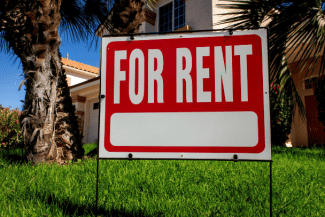Eviction Moratorium Extension: What it Means for Your Business
 On Sept. 4, 2020, the Centers for Disease Control and Prevention announced that it would again extend the order temporarily halting residential evictions until at least March 31. The CDC moratorium is intended to avoid widespread evictions in an effort to help contain the coronavirus, but the moratorium is far from simple. The order has sustained challenges and criticism from residents and landlords across the country. Law enforcement’s interpretation and application of the order varies widely from jurisdiction to jurisdiction.
On Sept. 4, 2020, the Centers for Disease Control and Prevention announced that it would again extend the order temporarily halting residential evictions until at least March 31. The CDC moratorium is intended to avoid widespread evictions in an effort to help contain the coronavirus, but the moratorium is far from simple. The order has sustained challenges and criticism from residents and landlords across the country. Law enforcement’s interpretation and application of the order varies widely from jurisdiction to jurisdiction.
Below is a summary of what landlords, property owners and developers need to know.
IS THIS LEGAL?
Maybe not, but the order withstood at least one challenge at the federal district court level. Several landlords and a trade organization brought an action against the Secretary of the Department of Health and Human Services, the CDC, and the CDC’s acting chief of staff, seeking to invalidate the order and moved for a preliminary injunction. The plaintiffs argued, among other things, that the order was promulgated without statutory and regulatory authority, is arbitrary and capricious, unconstitutionally deprives them of their property and strips landlords of their constitutional right to access to the court system. The Court denied the plaintiffs’ motion for a preliminary injunction. The plaintiffs filed an appeal in the United States Court of Appeals for the Eleventh Circuit, which remains pending as of the date of this publication.
DOES THE ORDER APPLY TO EVERY RESIDENT?
No, the order only applies to a “covered person,” which the order defines as a resident that (1) has used their best efforts to obtain available government assistance, (2) meets the income requirements for relief set forth in the order, (3) is unable to pay the rent due to loss of income, loss of compensable hours of work, a layoff or extraordinary out-of-pocket medical expenses, (4) is using best efforts to make timely partial payments, and (5) will likely be rendered homeless or forced to live in close quarters in a new shared-living setting if an eviction were to proceed.
The protections afforded by the order are not automatic. In order for the order’s protections to extend to a resident, they must deliver a completed declaration to their landlord certifying that it meets this five-pronged test set forth above under penalty of perjury. Unless and until this requirement is met, the order’s protections do not extend to a defaulting resident. The CDC published a declaration form that is in compliance with the order, but the order does not mandate that a tenant use this form. Any written document that an eligible person presents will likely suffice so long as it contains the information required to establish that the resident is a “covered person.”
DOES THE ORDER RELIEVE RESIDENTS FROM THE OBLIGATION TO PAY RENT?
The order specifically states that residents are still required to pay rent, and does not preclude a landlord from charging fees, penalties or interest as a result of a resident’s failure to pay rent on a timely basis under the lease. After the moratorium expires, the property owner/landlord may demand payment in full. If the resident is unable to pay, the landlord will then be able to evict them and seek a judgment for all sums due and owing.
DOES THE ORDER APPLY TO EVERY BREACH?
The order only prohibits evictions based on a monetary breach of the lease. The order does not prohibit a landlord from evicting residents for reasons other than monetary default. Landlords may still pursue evictions on the basis of criminal behavior, damage or destruction to property, having a pet without permission under the lease, having unauthorized occupants at the property or other breaches of the lease not stemming from nonpayment of rent.
AT WHAT POINT DURING THE EVICTION PROCESS DOES THE ORDER APPLY? DOES IT APPLY IN EVERY JURISDICTION?
While some jurisdictions interpret the order as prohibiting the physical removal of a resident (i.e., execution of a writ of possession by a local law enforcement agent), other jurisdictions interpret the order as precluding the filing of an action altogether. Further, the order provides that it does not apply in any state, local, territorial or tribal area with a moratorium on residential evictions that provides the same or greater level of protection than the requirements in the order.
WHERE DO WE GO FROM HERE?
Given the ambiguities of the order, the potential for local variation, and criminal penalties, landlords, property owners and others considering an eviction should consult with an attorney to navigate the intricacies of this order and other applicable local laws as they pertain to their properties.
Source: Multihousingnews.com















 Accessibility
Accessibility